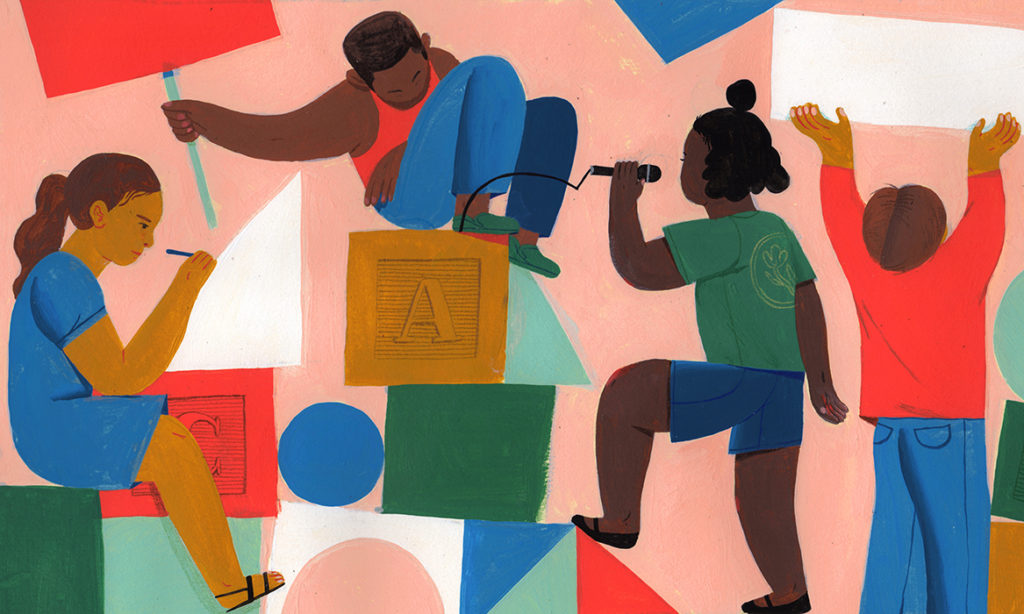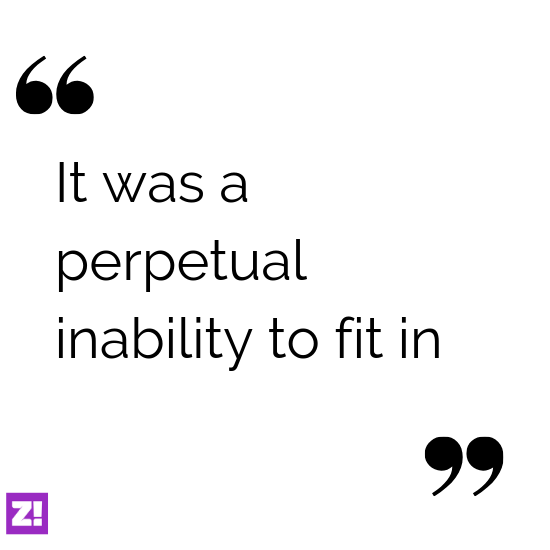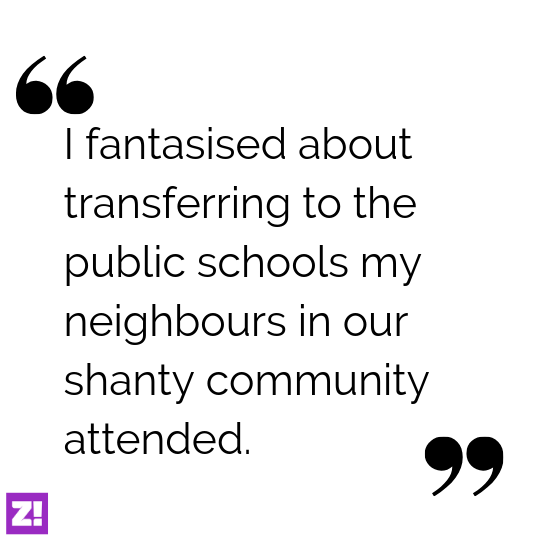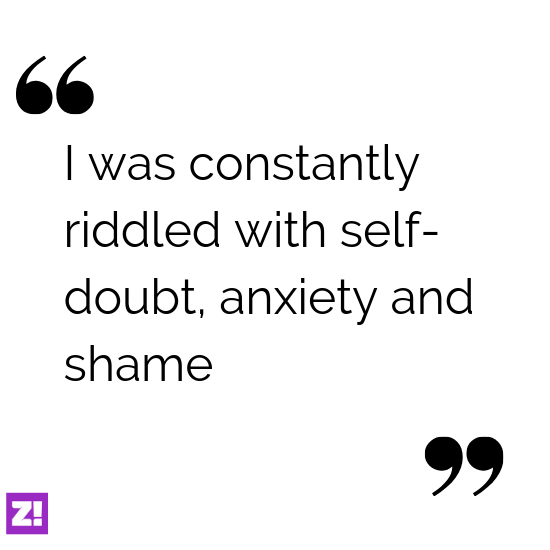
To get a better understanding of Nigerian life, we started a series called ‘Compatriots’, detailing the everyday life of the average Nigerian. As a bi-weekly column, a new installment will drop every other Tuesday of the month, exploring some other aspect of the Nigerian landscape.
In this article, we had a peephole view into the life of a Nigerian whose primary and secondary schooling experiences were marred by the simple fact that he was from a sphere of life entirely different from that of his peers.
My formative years were spent navigating life in primary and secondary schools, filled with the children of parents whose combined incomes could easily fund the running of a small country.
As the child of parents whose determination to provide the fineries of life was marred only by a glaring financial incapacity to do so, this afforded me a double education of sorts. On one hand, I grasped the rudiments of arithmetic, civics and the like. And on the other — I was made privy to a very, very practical approach on just how class-systems worked.

I had easily one of the best purely educational experiences money could buy, and I say this not in an overly sentimental ‘I love my school’ kind of way. My primary school, with its adjoining secondary institution, surely cracks any list recognising top academic performers in Lagos State, or maybe even Nigeria (but this might be the sentiment creeping in). Its (needless) nationally exclusionary syllabus boasted a mix of British and American curricula, or something of the sort – which made it a fly trap for the children of CEOs, bank executives, Consul Officers and other officials whose hyphenated positions only served to underscore the importance of their roles.
Equally enamoured by the prospect of a school that promised international learning at your back door, was my mother. Now, by no contortion of reality was she in the same league as CEOs and bank execs. Throughout the duration of my elementary and secondary schooling, she served as a cleaner in an incredibly ornate high-rise apartment complex within the vicinity of my schools. From there, she would make, what I I can only imagine was a constantly harrowing daily trip, past manicured lawns and fortified estate gates, to our sparsely furnished home in one of the lesser known shanties of Lagos State.
Perhaps this spurred the determination that her last child have a fighting chance at a better life. Resolute, she sourced for support for my education in the multi-levelled complex which she cleaned. Finding and spreading sponsors across its many floors like confetti. Thus began my journey as a shanty boy, rubbing shoulders with the spawn of the high and mighty of society.

Having a chance to look back at it, it’s a bit of a marvel how children, yet to fully comprehend the notions of good and evil, or even the three-times table, can so unreservedly grasp the concept of shame without any outside assistance.
I’ve never been able to pinpoint the exact moment I knew for a fact, that there was something that made me distinct from my peers. But it was always the little things that set me off.
It was in the way my mates in primary school appeared pristine to class every morning, not a hair out of place, or a sweat broken, during their commute from air-conditioned home to air-conditioned chauffeur-driven car, straight into the school premises. I, on the other hand, was sure to make an appearance, a little slick with sweat, shirt most likely untucked, with socks just begging to tell the tale of how my 13-minute (unaccompanied) walk to school, made friends of the dirt and sand along the way.
It was noticing, in Year 4, during that great stationery transition — how my Bic pen, with paper rolled into the tube proudly announcing your name, surname and class, differed greatly from that of my peers. Whose fountain, ballpoint and fluffy-headed gel pens added an extra flourish to writing, that the stain-happy Bic pen, just couldn’t.

It was even in the timbre of their voices. These children, who barely scratched the surface of adolescence, had a certainty of self and a rapport with teachers, I can only imagine was lubricated by being surrounded by, and giving direction to, armies of domestic staff. Whereas they had no reservations letting the teacher know where they had trailed off, or asking to have a missed point repeated; I was resolutely mute. Almost looking for permission to exist within the classroom.
It was listening in on conversations that centred round children programmes only available on satellite televisions and feeling like my peers were speaking in another language. One which needed an Ikoyi- club membership and a minimum two-person domestic staff to understand.
But sometimes, it was in the big things.
Like a teacher laughingly requesting that I put my hands down, after instructing that all last-born children in class raise their hands during an exercise. My kind of ‘last born’ wasn’t the sort being referred to.
Or having to feign disinterest for the umpteenth time, in school excursions that might as well have required pounds of flesh in payment.
The very many humiliating instances of being pulled out of class to answer for late fee payments. There was being invited to the homes of my peers for birthday celebrations and feeling like I had taken a left from earth and somehow landed in The Emerald City. Houses with corridors big enough to envelop the entirety of my home, that included dogs held as voluntary inhabitants, and not resilient strays you had to shoo away for picking your home as a marked spot.
It was being relegated to the service quarters in the apartment complex where my mother cleaned, while my peers (who lived in the flats), freely traipsed about the community.
It was always managing to stick out somehow in class photographs, no matter how much I laundered my uniform the day before.

It was a perpetual inability to fit in.
By secondary school, when adolescence multiplied self-awareness and embarrassment to the Nth degree, I had learned to reserve the whole truth when asked about my mother’s profession. Substituting her role as cleaner, for the more non-committal ‘worker’ in the buildings. An act for whose memory still makes me recoil.
Resumption weeks came to be dreaded. When stories of those who travelled abroad and had international hang-outs were freely swapped. Somehow, I knew my tales of transforming Lagos’ beaches into second homes with my friends, wouldn’t quite have made the cut.

My battles with esteem raged on during those years. Mornings, afternoons and evenings were hard. On several occasions, I fantasised about transferring to the public schools my neighbours in our shanty community attended. Where group walks to school wouldn’t be viewed as odd. Where no one would hide a snigger, while pointing out the fact that I had outgrown the uniform I honestly considered a better fit from the only other ill-fitting unit at home. Neither of which could be replaced for obvious financial reasons.
A school where I wouldn’t have to smile through students expressing fake-worry at the additional letters my ‘designer’ footwear sported, when kitting up for recreational activities in school.
But watching me, you would never have guessed.

To the outside observer, I was a spunky teen in class. Quick with retorts to anything that bordered on absolute disrespect to myself or my family’s station in life. Admirable athletic ability and some intelligence, or enough intelligence that it didn’t pose additional ammo for my already blood-thirsty colleagues. When in reality, I was constantly riddled with self-doubt, anxiety and shame.
This is not to say I had nothing but a nightmarish experience in school. For all the bad, it was almost completely countered by the lifelong relationships I forged with classmates who didn’t consider status in life, a caveat for fostering friendships. I’d also be remiss to ignore the great educational impact the school had in my life, while simultaneously exposing me to students whose ways of life, travels and experiences broadened any knowledge I could probably have hoped to gain, relating only with my ilk.
But was I glad to finally see the back of it, to attend a more socially-representative university? You can not imagine the relief.
*Locations and specific experiences have been tweaked to protect the identity of the narrator.




